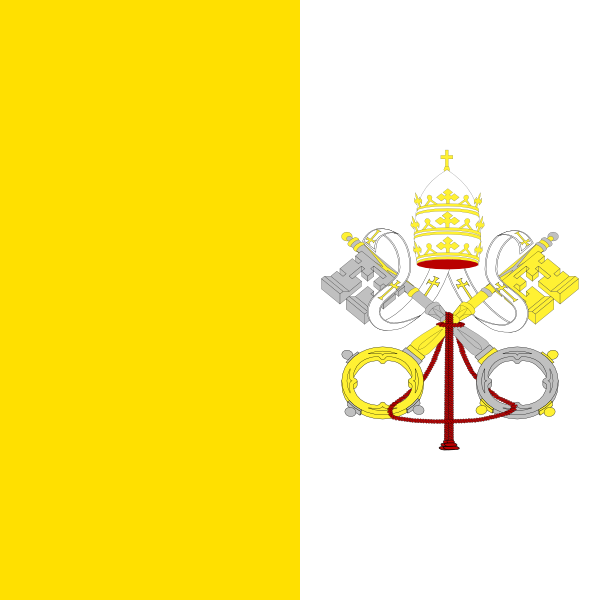Languages don't usually have flags
Very few languages have flags per se.
For example, the Finnish flag stands for Finland, a constitutionally bilingual country, not the Finnish language, which is also spoken outside Finland to some extent.
There is no flag for the Finnish language.
Nor for English as far as I know.
Some languages can be easily identified with some flags; consider Italian, French, Greek, and German, for example.
But the languages are not confined to their main countries, nor are they the sole language in them.
Although often innocent and sometimes useful, identifying a flag with a language can be seen as a political statement.
A Canadian might be upset that their native language is identified with a foreign flag (French), or a Swedish-speaking Finn might be upset that the flag of their fatherland is identified with another language (Finnish).
If Esperanto has a flag dedicated to the language, it is a rare exception.
Flags are typically for countries and other administrative entities, not languages.
No flag is sufficiently strongly associated with Latin
Some languages can be easily identified from a flag in contexts like language learning software or choosing the language of a website.
I would argue that Latin is not.
The proposed Latin flag linked to in the comments combines Rome and Vatican.
However, both Rome and Vatican operate mostly in Italian today.
The role of Latin in Vatican is mostly ceremonial.
Although Vatican is the country most strongly linked with the Latin language, Latin is (in my opinion) not the language most strongly linked with Vatican.
Some may argue that the Vatican flag stands more for Latin than Italian; perhaps it does, but the ambiguity is inevitable.
If the purpose of a flag is to make the user interface better, ambiguity is certainly something to avoid.
As Rafael commented, perhaps the best symbol is the Vexilloid of the Roman Empire (image from Wikipedia):

This corresponds quite uniquely to Latin.
However, I see two issues:
- It is not of the typical flag format, so it might be cumbersome to use. (Admittedly, there are cases like Nepal with a similar problem.)
- Without the abbreviation SPQR it is hard to recognize and identify with Latin.
In fact, it can be associated with Italian or German fascism, as those movements imitated Roman symbols.
(Thanks for pointing this out, Sam K!)
And even then some are not going to understand.
You are much better off using one more letter: the word "Latin" would make things clear beyond any doubt.
The best word to choose depends on the language context, of course.
Nobody has jurisdiction over Latin
Anybody can decide to issue a flag for anything.
Perhaps I could draw and publish a flag for mathematics.
Such declarations will have little effect unless done by a suitable body.
Latin spans many eras and areas in Europe, and no single institution can claim it to itself.
It might be taken seriously if Vatican or ALF issued a flag, but it is unlikely to catch on unless several organizations and individuals agree to it and start using it.
A flag without public awareness and support is quite useless, and no person or institution has sufficient power over Latin to do anything about the language unilaterally.
There is no central authority.
Any institution would need a strong reason to introduce such a flag.
Adding a symbol retroactively to something of such a great historical importance would easily be frowned upon.
I believe I am not the only one who will not be easily convinced to accept a flag for Latin.


